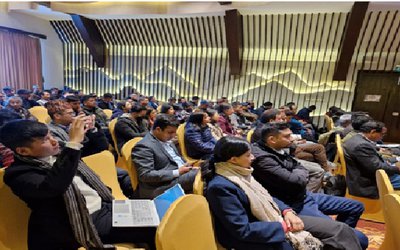
The coronavirus outbreak, a global pandemic as declared by the World Health Organization on March11, 2020, continues to evolve.We are learning more about this new virus every day.Dr.TedrosAdhanomsaid, "Some countries are struggling with a lack of capacity. Some countries are struggling with a lack of resources. Some countries are struggling with a lack of resolve."
Developing new vaccines takes time. So, it’s time to save people and their suffering. The best way to stop the spread is to continue practicing good personal hygiene and social distancing.Governments and public health authorities are attempting to flatten the curve to slow the spread of the virus, mitigate extensive transmission in the community and thus relieve some of the stress on the health care system.
Many governments around the world have implemented lockdowns banning on all non-essential travel. The measures have also seen closing down of restaurants, bars, parlors, shopping malls, theatres, clubs, games, musical events, trade shows and other places of social activity. People have been asked to work from home where possible.
Given the present scenario, travel restrictions, social distancing and isolation may continue for some time. If this is the case, a long period of social isolation may have a detrimental impact on people’s mental health leading to stress, depression, anxiety, sleep problems, alcohol abuse, hypertension, child abuse and domestic violence.We also find women on the frontline at home, shouldering a disproportionate burden of care, stress and domestic work. Studies have also shown that social isolation is generally reported more among young children and adolescents because they lack coping skills.There are families with members scattered in different countries who are unable to travel due to their ongoing jobs or education.
We can do 100 things in social isolation from taking a virtual tour of a famous art museum to learning new things or to reading books or to writing thoughts or to connecting with family and friends or to supporting the needy with foods or to exercising physical workouts or to having fun and laugh.
There are some proven ways to ensure mental health that affects how we feel, think and we act in certain situations,during a potentially extended period of social isolation:
- Take care of yourself by eating healthy food, drinking healthy drinks, engaging in meditation and physical exercise, connecting with family and friends, taking rest during work and getting enough sleep.
- Support socialization of young children and adolescentsby helping them to express their feelings, interacting through online classes, encouraging learning from natural consequences, teaching coping mechanisms, establishing healthy habits and providing safe environment.
- Challenge any negative thoughts by feeling positive about yourself and the direction your life is taking, treating yourself with kindness and respect, avoiding self-criticism and looking for a positive quality in person.
- Limit news intake by minimizing watching, reading or listening 24/7 coverage on coronavirus that causes you to feel anxious or distressed. It’s good to get updates once or twice at specific times during the day, not in the morning or evening.
- Help others when you can by showing solidarity and working together to protect staff, local communities and helping people in need.
Human beings are not made for social isolation. Our social capital is built around social interaction. Today,we are in a state of uncertainty for potentially extended period of social isolation. We have a shared responsibility to fight against COVID-19during social isolation byensuringgood mental health.
Author: Dr. Prabin Manandhar is an expert of international development. Currently, he is working in Iraq as Country Representative of The Lutheran World Federation. He is the Former Chair of the Association of International NGOs in Nepal (AIN). He is also a visiting faculty at the Kathmandu University. He can be reached at prabin.manandhar11@gmail.com
- World Humanitarian Day 2024: Committing to Peace and Accountability
- Aug 19, 2024
- Nepal Investment Summit: Unlocking Economic Potentials For Growth And Development
- Apr 28, 2024
- Investing In Women: Accelerating Progress
- Mar 10, 2024
- Embracing The 'Empty Chair: Advancing Global Inclusivity And Equitable Development
- Dec 29, 2023
- Mental Health In Youth
- Jul 16, 2023















